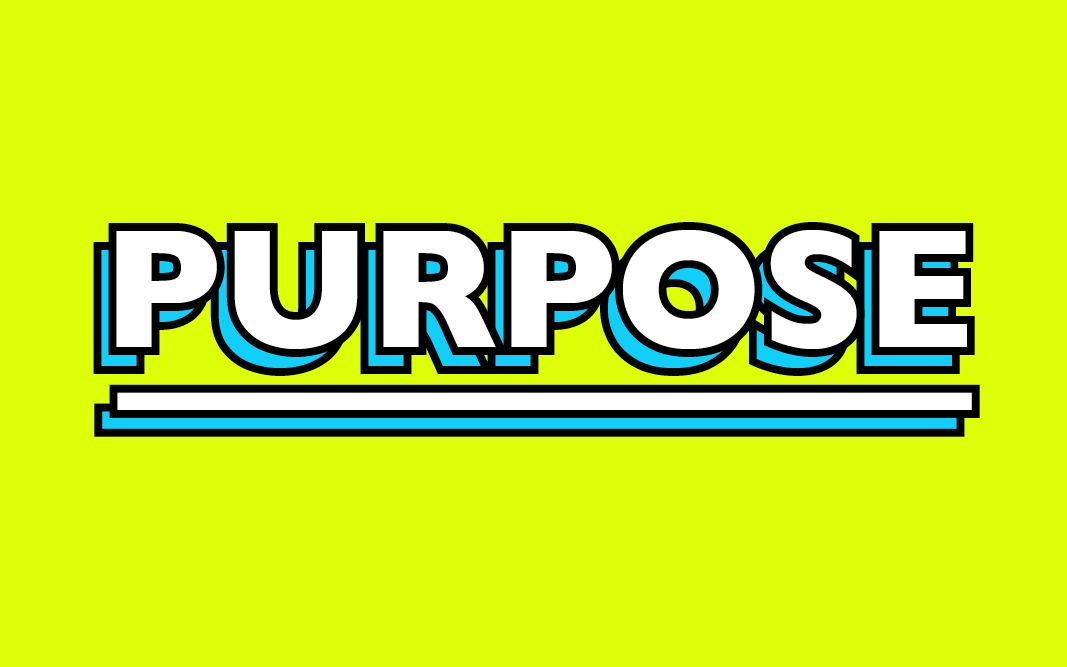ARE YOU DOING IT ON PURPOSE?
I fear for purpose I really do.
Not in the personal sense of course. A life without purpose is no life at all. Unless you are a Kardashian, of course.
No, I fear for the way that brands and marketers are attempting to co-opt purpose as a positioning.
Finding a brand’s ‘purpose’ has become the principle aim for the marketing industry, and with good reason. Branding is changing. Brands in most product categories are increasingly regarded as indistinguishable,[i] trust in them is approaching record lows[ii] and consumer ambivalence is rising by the day.[iii] As perception of brands blurs into a homogeneous disregardable mass – not unlike the Kardashians – brand purpose has been identified as the universal way forwards: the go-to strategy for any aspiring marketer.
In ‘purpose’ we should find a brand’s difference, the glue that binds the organisation together, and once more connects its with customers in a sustainable and profitable way
At Cannes this year, Keith Weed, CMO of Unilever, discussed the importance of brands ‘taking on difficult issues: the ones where they can really have a positive effect on the world we live in’. According to a study by BBMG and Globescan, 40% of global consumers fall into the group of ‘Aspirationals’, making them the largest consumer segment of the market. Aspirationals are characterised as customers interested in responsible consumption and‘willing to pay more for products produced in a socially and environmentally responsible way.’, Aspirationals are actively looking for brands that are creating such products. However, when 21,000 Aspirationals were questioned, less than half could spontaneously name a single brand that was.[iv]
Clearly brands that are currently trying to align themselves with a distinct social purpose are largely failing to do so. This represents a huge opportunity for those that can get it right.
Why is the predominant strategy of modern marketing failing? Tellingly, at this year’s Cannes Lions the chief focus was on brand purpose ‘in implementation’ rather than ‘in principle’. Put simply, there’s too much talk and not enough action. Grandiose statements of intent, however well meaning, have not translated into execution–what we stand for has become less important than looking like we’re standing for something.
My fear is the potential exploitation of purpose. I fear we are on a path that leads to it being used as the lead character within an increasingly extravagant performance of marketing smoke and mirrors: serving the bottom line rather than, fundamentally, a means for serving people. That’s nothing more than marketing lipstick on a pig.
Purpose is not something you can slip in and out of as it suits you. Purpose is not jumping on the bandwagon of easy causes to be seen doing something good. That does not restore brand meaningfulness. We believe consumers can distinguish between a brand that builds its business model upon its cause, and a brand that fits a cause around its business model.
Purpose means setting the cultural agenda, not just reflecting it. It’s about addressing social change on the upbeat: joining the cause that has barely begun, not the one that’s already legitimised and no longer publicly contentious. There is a fine line to negotiate between fighting the good fight, and flogging a dead horse.
We must be pioneers in purpose.
To be a Purposeful Pioneer means deciding what you stand for, what you stand against, and then taking action on it. A pioneer pushes the boundaries, taking on those risky social issues that others shy away from. They are prepared to ignite conversations and bring them to the mainstream, rather than shout to be heard at an already crowded party where others are leaving.
To be a pioneer means being true, brave and unrelenting, and it means accepting that you won’t always be liked by everyone for it. It means deeds over words and actions over appearances; not just as a temporary means to an end, but as a permanent and sincere way of being.
Get it right – being truly authentic in the pursuit of purpose – and the appearances will resolve themselves. Once more people will care about your brand: they’ll see it as distinctive and meaningful because it (and you) have actually made a difference.
However, get it wrong, as I fear many of us do, and it serves to undermine brands and marketing further. The ‘ethical purposes’ of marketing will become a toxic joke. At best we will be ignored, at worst we will be slated and distrusted as more backs turn against us.
Become a Purposeful Pioneer.
Pick a social issue, big or small – and let’s be honest, there’s no shortage of them – and truly go about addressing it. It must be viewed through your brand’s lens of legitimacy and authenticity: there is no one perfect way to enact change. Then lead the charge: engage partners, become the agenda, redefine culture. Be the change you want to see in the world. The world, and our country, really needs it.
[i] Copernicus Research
[ii] Edeleman
[iii] Havas Media Meaningful Brands
[iv]http://www.sustainablebrands.com/news_and_views/stakeholder_trends_insights/sustainable_brands/40_consumers_want_purposeful_brands_ye
